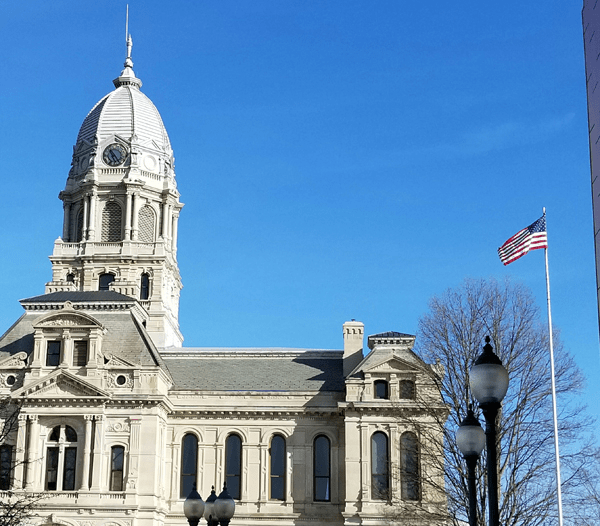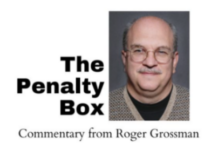A recommendation to increase some county wheel taxes and decrease others was presented to the county council Thursday evening.
The proposal came from the wheel tax committee, composed of county council members Doug Heinisch, Mike Long and Joni Truex and county attorney Chad Miner. No action was taken Thursday, but a public hearing is scheduled for 6 to 7 p.m. June 13.
The tax is collected by the Bureau of Motor Vehicles when vehicles are registered. Revenues are then distributed to counties, cities and towns based on the local road and street formula. The revenue must be used for construction, reconstruction, repair or maintenance of streets, roads and bridges.
Heinisch said over the last couple of months, the wheel tax committee met and came up with recommendations that “incorporate some changes from what we have currently.”
He said in the five years since the county council enacted the wheel tax, it has refrained from making any adjustments in an effort to understand the impact of the revenues gained as well as to determine the ability to effectively use the funds.
“To date, the generation of these revenues has been well matched with the efforts of the Highway Department to utilize the funds provided. Over the past two years, however, the county has seen significant increases in material and labor costs that will increase the costs to maintain and continue to improve the condition of the roads in our county,” he said.
It is because of the “increased burden” that the committee is recommending the increase of certain tax rates in an effort to raise the additional revenues needed to respond to the rising costs, Heinisch said.
The committee recommended the following changes, effective Jan. 1, to generate additional revenue:
• Trucks 7,000-11,000 pounds, automobiles and motorcycles, the proposal is to increase the tax from $25 to $35.
• Semi trailers, semi trucks, farm semi trailers and farm semi trucks, the proposal is a $20 increase from $40 to $60.
“Another responsibility of the council is to respond to any perceived inequity if possible,” Heinisch said. “The concern regarding the tax rate for 7,000 (pound) and under trailers has been consistent since the implementation of the wheel tax several years ago. In an effort to better match the charges for these trailers with the costs that they’re actually incurring, the committee is recommending that the tax on these trailers be reduced from $40 to $25.”
The committee also recommends that the rates be maintained for a minimum of two years. The committee will next formally look at any changes in 2021, which would take effect in 2022.
Councilman Jon Garber asked if charges are made, do they have to be submitted to the state by the end of July. Miner said they’d have to be adopted and submitted by Sept. 1, so if the council gave a final vote on it at its August meeting, that should be OK.
Garber then asked since this was the first time the information was getting out to the public, if the council could look at it in June and have public input on it and still make the deadline. Council President Sue Ann Mitchell said, “absolutely.”
“I don’t think anyone is prepared to address it this evening,” Mitchell said.
Kim Cates, councilwoman, said it’s just a proposal from the committee and not written in stone. Mitchell agreed that was correct.
Mitchell also said the council might want to “fine tune” the proposal even before it recommends it as the final proposal.
She then asked if there was a reason why motorcycles were included in the proposal. Truex said the committee was under the impression that it “had to” charge motorcycles the same as cars, until it heard back from Miner that they didn’t have to be charged the same.
Miner said, “Basically, the way that it works is, that for the excise surtax – which is the passenger vehicles and motorcycles – those you have to do by class, so like a passenger vehicle, motorcycle, light-duty trucks basically, and those can each be different so the cars can be a different rate than the motorcycles, but all passenger cars have to be the same.”
With the wheel tax, he said, they could do different rates based on weight classifications that the BMV has.
Cates said that year over year, the tax is generating less but costs are going up. “The trajectory is, if we keep it the same, it’s going to be a lot less next year,” she said.
Truex said the highway department does as much as it can with the money it is provided. “Even increasing the income – if we do in fact pass this – would still not allow him (County Highway Superintendent Scott Tilden) to do as much as everyone in this county would like him to do. However, he is doing a lot of great things and making progress,” Truex said.
Long said that by the county implementing the wheel tax and using those funds, it allows the county to apply for Community Crossroads grant dollars from the state.
Mitchell said with all of the proposed increases, the county would wind up with an additional $805,970, but there would be a decrease of $132,570 for trailers 3,000 to 7,000 pounds, resulting in a net difference of $673,400.
“An unfortunate part about all of these figures – as bad as I hate to say this – we have figures from the state showing the number of plates that were purchased. … Their cut-off date is totally different than the cut-off date where we’re receiving the money. So we can’t make it balance, it just doesn’t,” Mitchell said.
“So at this point, it’s just kind of a guess basically.” Mitchell said she can’t guarantee the county will even have more money if the council passes the recommendation. “That’s the downfall of it.”
Cates said the county is $400,000 short of the money it’s supposed to have right now from the tax.
The county gets about 62% of the money collected from the wheel tax, with the county’s other municipalities and towns sharing the remainder.
Mitchell said raising the tax on motorcycles seemed “inappropriate” to her. Truex said as a member of the committee, she would be in favor of not raising the tax for motorcycles especially since they’re not on the road year-round.
Long said the council should take a 30-day comment period on the recommendation and then hear from the public at its June meeting. After the council agreed to open it up to public comments at its June meeting, Truex suggested the meeting start at 6 p.m. for the public comments, with its regular meeting beginning at 7 p.m. Mitchell said that sounded like a good idea.
“Quite frankly, if we’ve heard from the public for an hour, we will probably have heard everything they’ve got to say other than ‘I don’t like this.’ It would wind up being the same thing,” Mitchell said.
She earlier noted that Long pointed out that the wheel tax committee had talked about horse-drawn buggies and perhaps an adjustment needed to be made there. That suggestion has been given to the county commissioners. Long said that’s correct as it’s not part of the wheel tax but a formal suggestion will be made to the commissioners that they reconsider the buggy tax ordinance.





